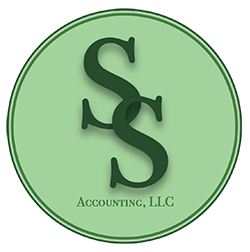Written by Josh Simpson, CPA – 11/7/2017
-Iraq Veteran turned CPA and Owner of Simpson & Simpson Accounting-
–Please let us know if you would like help with any of these areas, mission accomplished when we save you hard-earned dollars!-
Preparing for your Tax returns as a Business Owner – Year Ending 12/31/17
Note: No need to worry about current tax gossip, nothing is changing dramatically for the 2017 tax year (i.e. double standard deduction, simplifying/lowering corporate and individual tax brackets). Well…. might want to worry if lower tax rates do not come into fruition within a year or two.
Planning on buying a bigger house in the next year or two? (Be careful how many deductions you take!)
- This is a catch 22 that we deal with a lot and work together with a mortgage broker for a solution.
- Example = A business owner cannot expect to have $400,000 of 2017 business income, 2017 expenses of $360,000, 2017 net profit of $40,000, and then expect to buy a $500,000 house with a loan.
- Basically, the federal government won’t let the business owner take a whole bunch of deductions to reduce taxes and then try to qualify for a big house. It’s all connected….
- Also remember that your social security benefit is based on your highest 35 years of earnings. So, if your business paid no taxes for many years, it will hurt your social security paid out each month in retirement.
Trying to Save Money on Taxes this Year?
- See next section below, preparing your financial statements last minute can lead to missed deductions
- Conservation Easements – Biggest tax buzz word of the year! Be careful with this one, I wouldn’t invest in this strategy from just any firm selling conservation easements off the street. I have a trusted law firm for this strategy if interested. Here is a brief example: Taxpayer invests $100,000 for a piece of land and gets a charitable deduction of $500,000 when the property is contributed for a charitable purpose. There are many variations of conservation easements.
- As a business owner do you have a SEP IRA or other self employed retirement account? The business owner can reduce business income up to $54,000 per employee for 2017, this is a great benefit. There are other retirement account options if not wanting to contribute to employees.
- Expense assets up $2,500 instead of capitalizing these purchases. This is allowed by the IRS under notice 2015-82. Before 1/1/16, the IRS only allowed $500. Great for those who own real estate properties!
- Research & Development Credit – Does your company develop/design a new product? Or are activities based on science or engineering? The R&D credit is broad and not just for large corporations.
- Cost Segregation Studies – Do you own the building involved in your business? Instead of taking an expense for the building slowly over 39 years, a cost segregation study lets your business expense parts of your building much faster at 5, 7, or 15 years reducing your business income.
- Work Opportunity Tax Credit (WOTC) – Does your company hire veterans, people on food stamps, youth summer employees, or ex-felons? If so, your company can get a significant tax credit
- Film Tax Credits – Do you pay high individual state taxes? If so, you can buy film tax credits 90 cents on the dollar to reduce your states taxes by 10%. This is an easy strategy that works!
- File late S Corp election – Is your company making $150,000 or much more of yearly income and you have not added the S Corp election to your LLC? Might want to consider filing a late S Corp election. Need to hurry if considering! The IRS might deny your late election, but it might save you thousands on dreaded self-employment taxes
Take a closer look at your 1/1/17 – 12/31/17 income statement and 12/31/17 balance sheet
- Will your income statement and balance sheet be completed shortly after 12/31/17?
- Waiting to complete your financial statements during the end of tax season might result in missed deductions and errors.
- Income statement/Profit & Loss
- Does my income/sales number make sense?
- Do my expense names/amounts make sense?
- Is my Income Statement nice and neat or does it look like a mess?
- Remember, a cop is less likely to search a clean organized car compared to a messy car. Same goes for your accounting records.
- Balance Sheet
- Do my asset and liability account names/amounts make sense?
- Don’t want to have account names that are unclear such as “Ask my Accountant”
- Equity Section of Balance Sheet – this area is commonly messy
- Keep it simple if you can: Beginning Equity + Net Income – Distributions = Ending Equity
- Try not to have negative equity! (Taking more distributions than your accumulated net profit over the years)
Deadlines to file your 2017 Business/Personal Tax Returns
- March 15th, 2018 – Partnerships (Form 1065) and S Corps (1120 S)
- April 17th, 2018 – Sole Proprietorships (Schedule C), Single-member LLC’s (Schedule C), Personal Tax Return (Form 1040)
- April 17th, 2018 – C Corporations
Remember to pay Federal/State taxes out of your personal checking account
- If your business is a S Corp, LLC, Partnership, or Sole Proprietorship, remember that your business does not pay taxes, your business passes the income to you personally and your partners. So, don’t pay these taxes with your business checking account, transfer the money to your personal account first, then pay the taxes from your personal bank account.
- Have a separate tax bank account to transfer money from your business checking account each time you receive significant income to avoid falling behind on your tax payments




